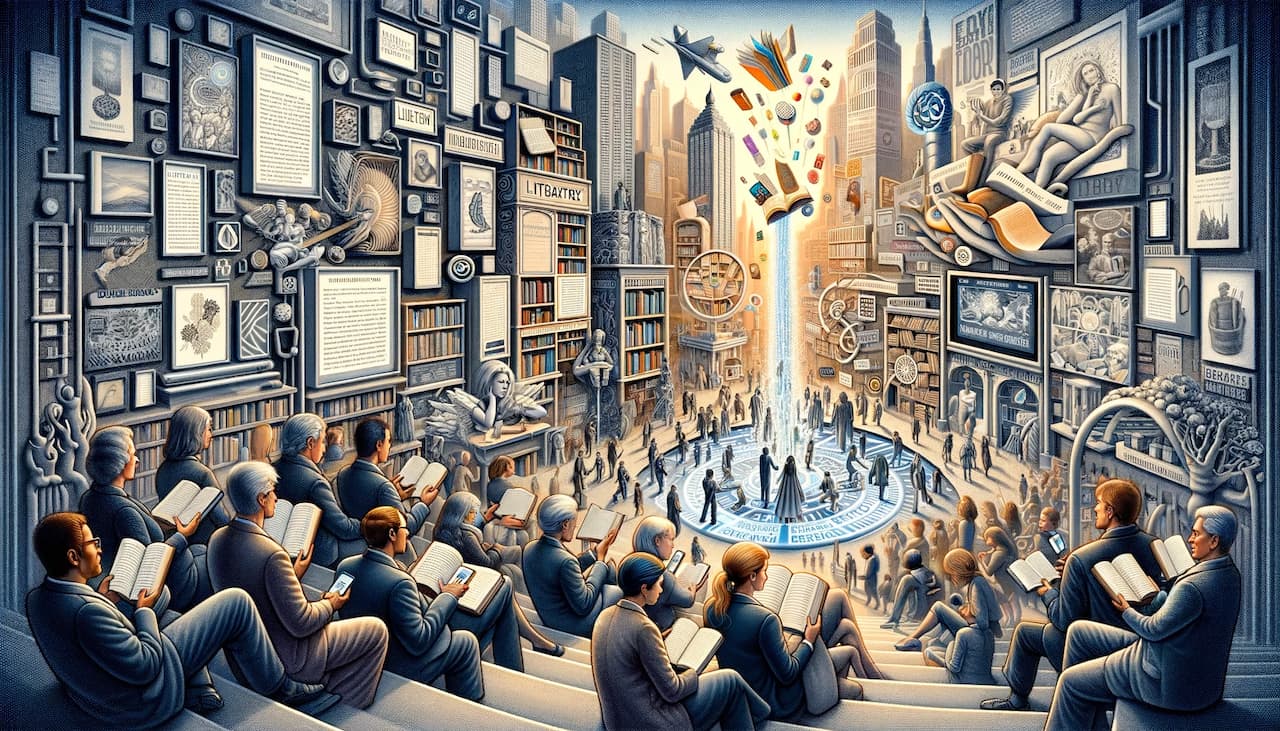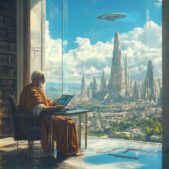The Enduring Value of Literature in Modern Society
Literature has always been a fundamental aspect of cultural expression and intellectual discourse, reflecting society, providing insights into the human psyche, and nurturing empathy among its readers. Even in our fast-paced, technology-driven world, the significance of literature is unwavering, perhaps even more essential. This discussion explores the diverse roles literature plays in today’s world, emphasizing its importance in education, cultural preservation, personal development, and societal critique.
In the realm of education, literature is invaluable, offering a wealth of vocabulary, intricate sentence structures, and a plethora of literary devices crucial for honing language skills and critical thinking. Students engaging with literature learn to dissect texts, grasp historical contexts, and appreciate various viewpoints. This educational journey not only boosts their academic skills but also equips them with the nuanced understanding necessary to navigate the complexities of contemporary society, fostering critical and empathetic thinking towards prevalent social issues.
Cultural Preservation and Transmission
Literature acts as a conduit for preserving cultural heritage, encapsulating a society’s values, trials, and dreams. It allows the transmission of historical narratives, myths, philosophies, and ethical principles to succeeding generations, ensuring the continuity of cultural identity and connecting people to their legacy and the wider human saga. In our interconnected world, literature is pivotal for fostering intercultural empathy, offering a window into the diverse lifestyles and customs of people worldwide, thereby enriching our collective cultural fabric.
The transformative power of literature in personal growth and empathy is profound. Immersing readers in the lives of varied characters and narratives, literature broadens perspectives, challenges entrenched biases, and deepens understanding of human complexity. This engagement not only heightens emotional intelligence but also cultivates a more inclusive outlook, sensitizing readers to the nuances of others’ experiences and sufferings.
The Multidimensional Role of Literature
Historically, literature has mirrored societal values, aspirations, and conflicts, transcending mere entertainment to include moral education and cultural identity preservation. It has been instrumental in knowledge dissemination, empathy cultivation, and societal critique, thus fostering both intellectual and emotional development. Despite the rise of digital media, literature’s core essence remains indispensable, offering immersive experiences and imaginative richness that digital platforms can’t fully emulate, thereby maintaining its pivotal role in human culture.
Societal Critique and Reflection
Literature frequently serves as a social critique, reflecting on the socio-political and economic frameworks of its time. Authors utilize satire, allegory, and narrative to challenge injustices, advocate for reforms, and inspire social movements. Today, literature remains a potent tool for societal commentary, prompting readers to examine and challenge the status quo, thereby fostering a space for alternative visions and critical discourse, essential in democracies valuing free expression and debate.
Benefits of Engaging with Literature
- Enhanced Empathy and Understanding: Literature deepens our ability to comprehend and empathize with others, improving our connections.
- Improved Cognitive and Communication Skills: It sharpens our analytical abilities and enhances our capacity to articulate complex ideas.
- Cultural Awareness and Appreciation: Engaging with stories from diverse cultures broadens our understanding and fosters cultural appreciation.
- Moral and Ethical Reflection: Literature prompts us to reflect on moral dilemmas, nurturing our ethical sensibilities.
- Stress Reduction and Mental Health Benefits: Reading can be a therapeutic escape, offering relaxation and mental health benefits.
Literature’s Impact on Personal Development
| Aspect | Impact |
| Empathy | Reading literature fosters an ability to understand and share the feelings of others, enhancing interpersonal relationships. |
| Critical Thinking | Engaging with complex narratives and character dilemmas sharpens analytical skills and promotes a deeper understanding of human behavior. |
| Creativity | Literature stimulates the imagination, encouraging creative expression and problem-solving abilities. |
FAQs
Why is literature important in today’s digital age?
Literature offers a unique depth of understanding and emotional connection that digital media cannot fully replicate, enriching our lives and expanding our perspectives.
Can literature influence societal change?
Yes, literature has the power to highlight social issues, challenge norms, and inspire collective action, playing a crucial role in societal evolution.
How does literature contribute to personal growth?
It enhances cognitive abilities, emotional intelligence, and moral reasoning, fostering a well-rounded and empathetic individual.
For those interested in exploring the foundations of storytelling and its evolution, consider delving into the basics of programming languages and how they contribute to the digital narratives of today. Additionally, beginners looking to embark on their own creative or technical writing journey may find valuable insights in launching your coding journey.


